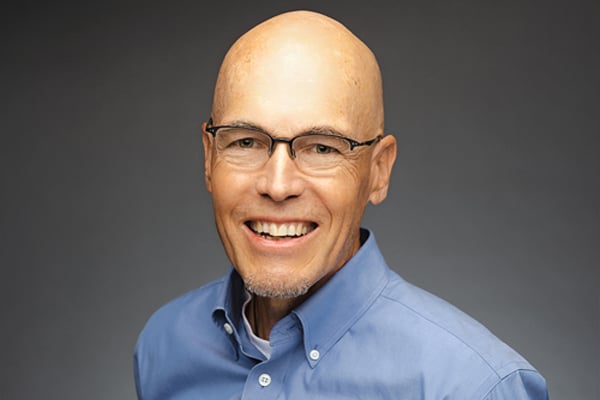Leaders face many challenges, and though it may be easy to avoid conflict and tough conversations, open, courageous, and timely discussions are fundamental for fostering healthy relationships and teams. While it may take time for leaders to develop this skill, avoiding tough conversations will often result in frustration, a lack of trust from others on the team, and an eroding of the organization's effectiveness. Courageous conversations are a necessary skill for all leaders to master.
Fortunately, you can learn effective communication skills to improve outcomes. Courageous conversations are a loving way to resolve conflicts, and with practice, they become easier and more natural without any avoidance, hesitation, or guilt.
Fostering Healthy Conflict and Courageous Conversations
Fostering a culture of healthy conflict begins with understanding conflict. When leaders explain why they want to foster and encourage conflict, they cast a vision and set the stage for team members to disagree with purpose. In fact, evidence shows that not all conflict is bad; healthy teams work through and leverage the various forms of conflict effectively.
- Task Conflict: Task Conflict is conflict about what should be done. Examples could include differences of opinion regarding how to respond to an urgent and unusual team request or deciding whether to design or buy a new accounting software. Generally, task conflict is positive because it refines the team’s focus, gets people on board, and builds a collaborative work environment.
- Process conflict: Process Conflict is conflict about how things could be done. This might look like deciding on the timing of milestones and deadlines in a project or how an event should be planned and executed. Process conflict is important because it surfaces problems early, prevents errors, and improves implementation. Differing perspectives help refine the idea and pave a clear path for successful completion with buy-in from key stakeholders.
- Interpersonal/relational conflict: Interpersonal conflict, or relational conflict, is conflict between people. Typically, this conflict occurs when healthy task and process conflict are being avoided. It can also happen because a previous disagreement has been left unresolved.
Task and process conflict are part of a healthy culture, but interpersonal/relational conflict can usually be prevented when people are willing and able to have courageous conversations with each other. Building a culture where courageous conversations are natural requires an understanding of the benefits of conflict, and then modeling those types of conversations well. Let’s look at this more closely.
1. Modeling healthy conflict starts at the top.
Everyone in your organization has a responsibility to have courageous conversations. The best way to train and equip your teams is by modeling this well at the top. Senior leaders can model respectful and constructive behavior when faced with conflicts by demonstrating these skills to one another. As a result, leaders will be more likely to take ownership of their mistakes and seek opportunities for personal growth and development. This sends a powerful message to employees.
Courageous conversations start with you. Modeling accountability at the top fosters a culture of accountability that will permeate throughout the organization.
2. Becoming skilled at having courageous conversations requires a posture of curiosity.
In order to lead well, we need to be comfortable having courageous conversations. We need to be willing to learn this important skill. Thankfully, as Christian leaders, we have an incredible resource at our fingertips; difficult conversations are modeled throughout scripture. Jesus exemplified positive, honest, constructive, corrective, bold, and courageous communication with everyone he encountered. Others, including Paul, Peter, James, and John, filled their letters with balanced, helpful, and courageous communication (see a Pauline example in Ephesians 4:17-32). We also see other great heroes of the faith like Samuel, Daniel, David, and Solomon modeling this leadership quality. It’s our job, and in fact, our privilege and calling as Christian leaders to foster a safe environment for courageous conversations to occur.
For further additional reading about having difficult conversations, we also recommend James C. Hunter’s The Servant and The Culture, and Crucial Conversations by Grenny, Patterson, and McMillan, as well as the following resources from Best Christian Workplaces:
If you find yourself struggling with knowing whether or not a courageous conversation needs to be had, surveying with BCW is a helpful tool. As leaders, we won’t always see the hot spots in our work culture. Data can help us move from hunches to facts and help pique our improvement curiosity. Responses to survey questions can lead us to ask ourselves, why is that issue a sticking point? or why is that team lower than I would have expected? This can point us in the direction of needed conversations.
3. Setting clear expectations promotes trust and accountability.
We can’t just tell people we’re unhappy without first creating clear expectations. Hunter says in The Culture that there should be no tickets without signs and radar. Likewise, it’s important to maintain open lines of communication. When subordinates see that helpful candor is valued, having difficult conversations about unmet expectations won’t be such a surprise.
4. Practice, practice, practice.
Courageous conversations are important but aren’t always natural. Depending on our personal style it may be a skill that requires motivation and then practice. It’s natural to fumble a little and feel awkward at first. But, in the end, it is a skill worth developing.
If you feel like courageous conversations are not happening in your culture it is important to ask yourself why? Again, Hunter in The Culture reminds us that it isn’t caring, honest, or authentic to avoid the hard truth. As leaders, we are called to want the best for people.
As we answer the call to the often uncomfortable space called leadership, healthy conflict resolution is a top priority. You and I have the power of the Holy Spirit to guide us. We are equipped with God’s Word, and Jesus has shown us the way. Invite others in and begin to build a courageous community. In the end, you’ll create an environment that is more impactful, more honest, more loving, and ultimately more engaged.


 Cary Humphries
Cary Humphries




